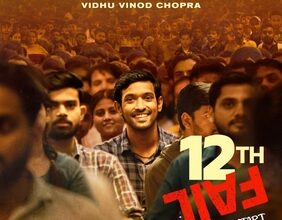Nuclear Physics meets Bhagavad Gita: Unraveling the Indian connect in Oppenheimer
J Robert Oppenheimer has well written about his studies in Sanskrit, his fascination for the Bhagavad Gita, as well as his efforts to read the Meghaduta and the Vedas.

As the anticipation builds among Indian fans for the release of Christopher Nolan’s upcoming film, “Oppenheimer,” there has been renewed interest in the renowned nuclear physicist J. Robert Oppenheimer’s association with the iconic reference to the Bhagavad Gita. Oppenheimer frequently quoted from this sacred text, and his connection to its words has become inseparable from his remarkable achievements.
Oppenheimer’s research ultimately led to the development of the world’s first nuclear bombs. Realizing the immense significance of his creation, he famously recounted that after the successful testing of the bomb in the New Mexico desert in 1945, the words from the Bhagavad Gita came to his mind: “If the radiance of a thousand suns were to burst into the sky, that would be like the splendor of the Mighty One… I am become death, the shatterer of worlds.” This powerful quote from the sacred text encapsulates the profound impact and ethical implications of his work in the field of nuclear weaponry.
As per Time Magazine, Oppenheimer’s interest in the Bhagavad Gita was driven by his personal enjoyment, often reading it in the evenings and occasionally sharing it with friends for entertainment. He cherished a copy of the sacred text, which was bound in pink and held together by scotch tape, prominently placed in his Princeton study.
To deepen his understanding, Oppenheimer took Sanskrit lessons, making it his eighth language of proficiency. Among the verses that resonated with him, he particularly favored the couplet, “Scholarship is less than sense, therefore seek intelligence.” This reflects his appreciation for wisdom and insight beyond mere academic knowledge. According to Nobel Prize winner Isidor Rabi, Oppenheimer’s diverse interests, including his fascination with the Hindu religion, were seen as going beyond the traditional scientific pursuits, making him, in Rabi’s view, “overeducated” in areas lying outside the usual scientific tradition.
During a news interview after the bombings in Japan, Oppenheimer vividly recounted the emotions experienced in the control room on the day of the nuclear test. He expressed that they all knew the world would never be the same again. In that intense moment, some people laughed, some cried, but most were left speechless. Oppenheimer recalled a line from the Bhagavad-Gita, where Vishnu, in his multi-armed form, tries to persuade the Prince to fulfill his duty and says, “Now, I am become Death, the destroyer of worlds.” He suggested that, in their own way, they all felt the weight of that responsibility.
In a recent interview, Cillian Murphy, the leading actor in the film ‘Oppenheimer,’ disclosed that he sought inspiration from the Hindu sacred text, the ‘Bhagavad Gita,’ to portray the role of J. Robert Oppenheimer.
Cillian Murphy shared that he delved deeply into the pages of the book to gain insights into Oppenheimer’s psyche. “I read the ‘Bhagavad Gita’ as part of my preparation,” he mentioned during the conversation. The actor expressed, that he found the sacred text “absolutely beautiful and very inspiring.” Oppenheimer himself found great inspiration in the ‘Bhagavad Gita,’ and Murphy’s exploration of the text allowed him to connect with the physicist’s source of influence.
Directed by Christopher Nolan, the grand biographical thriller, “Oppenheimer,” is scheduled to release in theaters on July 21. Alongside Cillian Murphy, the film boasts a star-studded cast including Robert Downey Jr., Matt Damon, Florence Pugh, and Emily Blunt. As it hits the big screens, “Oppenheimer” is set to vie for the top spot at the box office, facing tough competition from another highly anticipated movie, “Barbie.”



